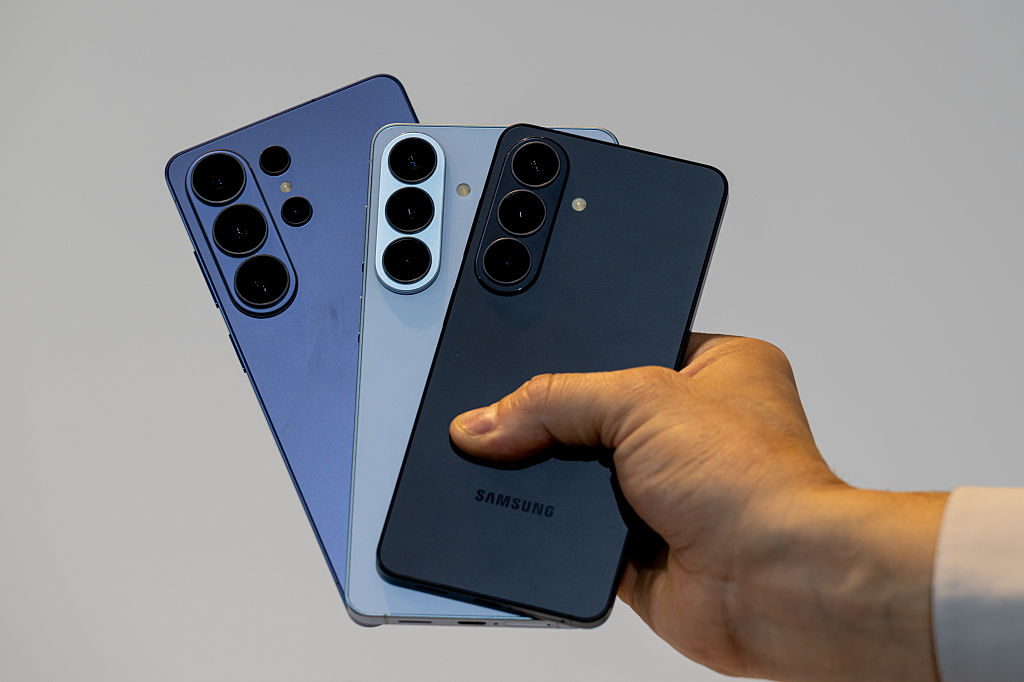Best No-Fee High-Yield Savings Rates: February 2026
If you want to achieve short-term savings goals, these are the best options to consider. Best of all, they're fee-free.

Profit and prosper with the best of Kiplinger's advice on investing, taxes, retirement, personal finance and much more. Delivered daily. Enter your email in the box and click Sign Me Up.
You are now subscribed
Your newsletter sign-up was successful
Want to add more newsletters?
If you're looking to find a great high-yield savings account but want to avoid pesky fees, you're in luck. You can find no-fee high-yield savings rates as high as 4.20%
With a no-fee high-yield savings account, you'll have the benefit of a high APY, but you won't have to cut into your earnings by offsetting any additional monthly fees.
Best of all, now is an excellent time to secure a higher rate, as the Federal Reserve didn't cut rates at its January meeting. It means savers have more time to capitalize on higher rates.
The best no-fee high-yield savings rates
Account | APY | Min. Opening Deposit |
|---|---|---|
4.20% | $0 | |
4.09% | $500 | |
4.03% | $100 | |
4.00% | $100 | |
3.90% | $0 | |
3.85% | $0 |
Tips for finding the best no-fee high-yield savings rates
Before you open a no-fee high-yield account, there are a few things to keep in mind.
Look out for hidden fees: Brick-and-mortar banks and credit unions are more likely to have minimum balance requirements than online banks. In all cases, check to see what, if any, requirements exist before opening the account, so fees don't eat into interest earnings.
Ensure your money is safe: Another important consideration when opening a savings account is to verify that it is FDIC-insured, so you can be confident that your funds will be secure in the event the bank fails. The FDIC protects up to $250,000 in individual deposit accounts and up to $250,000 for each person's share of joint accounts. Credit Union members also receive $250,000 through the NCUA.
Compare high-yield rates: It's a good idea to shop around for savings accounts to ensure you get the best rates. Usually, online banks offer more generous APYs on savings accounts, so changing from your traditional savings account at a brick-and-mortar bank to one online could be a good choice.
Avoid teaser rates: Teaser rates are promotional rates that banks use to attract new customers, but these are typically short-lived.
Rates are variable: Since interest rates on no-fee high-yield savings accounts are variable, the APY on the account can decrease from what it was when you first opened the account if the Fed cuts rates in the future.
Use the tool below, powered by Bankrate, to search further for some of the top high-yield savings accounts available:
Pros and cons of no-fee high-yield savings accounts
Pros:
- Higher APYs: Since high-yield savings accounts have higher APYs than traditional savings accounts, you'll accrue more interest over time. Plus, interest in these accounts is compounded daily.
- Safety: Many high-yield accounts are FDIC or NCUA insured, meaning that if something were to happen to the bank (or credit union) your account is with, your money will still be safe.
- Accessibility: While there are sometimes limitations to the number of free withdrawals you can make from a savings account, your money is still readily accessible whenever needed.
- No minimum deposit requirements and/or fees: Many high-yield savings accounts charge a monthly fee and/or require a minimum deposit to earn the advertised APY, but no-fee accounts won't.
Cons:
- Not suited for long-term goals: If you're looking to save for long-term goals, such as retirement, other investments, such as stocks, are usually a better choice for your money.
- Variable interest rates: Since interest rates are variable, the APY on the account can decrease from the rate it was when you opened the account.
- Online banks: Since most high-yield accounts are offered by online banks, you likely won't have branch access, so contacting customer service can be more challenging.
- Transfers can be time-consuming: If you have a savings account with an online bank and a checking account with a traditional bank, it could take a few days to transfer funds from your savings to your checking account. Should you need immediate access to your savings, ensure you have an active ATM card available.
Bottom line on no-fee high-yield savings rates
If you're not saving your cash in a high-yield savings account, you're missing out on easy money. Many high-yield savings accounts offer impressive APYs that can help you bolster your savings with no effort.
If you opt for a no-fee account, you won't have to worry about paying a monthly service charge that can eat into the interest you've earned.
Related Content
Profit and prosper with the best of Kiplinger's advice on investing, taxes, retirement, personal finance and much more. Delivered daily. Enter your email in the box and click Sign Me Up.

Sean is a veteran personal finance writer, with over 10 years of experience. He's written finance guides on insurance, savings, travel and more for CNET, Bankrate and GOBankingRates.
-
 3 Smart Ways to Spend Your Retirement Tax Refund
3 Smart Ways to Spend Your Retirement Tax RefundRetirement Taxes With the new "senior bonus" hitting bank accounts this tax season, your retirement refund may be higher than usual. Here's how to reinvest those funds for a financially efficient 2026.
-
 5 Retirement Tax Traps to Watch in 2026
5 Retirement Tax Traps to Watch in 2026Retirement Even in retirement, some income sources can unexpectedly raise your federal and state tax bills. Here's how to avoid costly surprises.
-
 Trump's New Retirement Plan: What You Need to Know
Trump's New Retirement Plan: What You Need to KnowPresident Trump's State of the Union address touched upon several topics, including a new retirement plan for Americans. Here's how it might work.
-
 The Best Short-Term CD for Your Cash in 2026
The Best Short-Term CD for Your Cash in 2026This strategy can help you earn thousands in months.
-
 Thinking of Switching Phone Carriers? Do These 8 Things First
Thinking of Switching Phone Carriers? Do These 8 Things FirstSwitching carriers is easier than ever, but overlooking the fine print could cost you. Here’s what to check before you make the move.
-
 Samsung Galaxy S26 Ultra: What to Know Before You Upgrade
Samsung Galaxy S26 Ultra: What to Know Before You UpgradeThe Galaxy S26 Ultra brings new features and strong launch deals, but whether it’s worth upgrading depends on what you already own.
-
 What Is an Assumable Mortgage and Could It Save You Thousands?
What Is an Assumable Mortgage and Could It Save You Thousands?With mortgage rates still elevated, taking over a seller’s existing home loan could lower monthly payments — if the numbers work.
-
 Have You Fallen Into the High-Earning Trap? This Is How to Escape
Have You Fallen Into the High-Earning Trap? This Is How to EscapeHigh income is a gift, but it can pull you into higher spending, undisciplined investing and overreliance on future earnings. These actionable steps will help you escape the trap.
-
 I'm a Financial Adviser: These 3 Questions Can Help You Navigate a Noisy Year With Financial Clarity
I'm a Financial Adviser: These 3 Questions Can Help You Navigate a Noisy Year With Financial ClarityThe key is to resist focusing only on the markets. Instead, when making financial decisions, think about your values and what matters the most to you.
-
 Where Olympians Store Their Medals is a Great Lesson For Your Valuables and Cash
Where Olympians Store Their Medals is a Great Lesson For Your Valuables and CashWhat you can learn about protecting your cash and values from where Olympians store their medals.
-
 An Executive's 'Idiotic' Idea: Skip Safety Class and Commit a Federal Crime
An Executive's 'Idiotic' Idea: Skip Safety Class and Commit a Federal CrimeSeveral medical professionals reached out to say that one of their bosses suggested committing a crime to fulfill OSHA requirements. What's an employee to do?